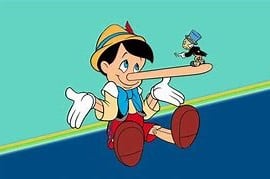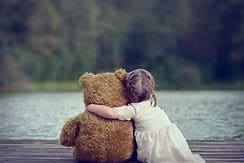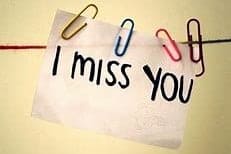When babies are born, they arrive with a sense of conscience that develops over time into adulthood. The human conscience is the regulator that gives us the ability to choose right from wrong and good from evil. It is that “little voice inside our heads.”
The human conscience is formed by identification like “monkey see, monkey do.” It has its beginnings in childhood and, with age, is influenced by instruction, training, and interactions with the environment, family included. Because of these various influences, this may explain why humans do not necessarily act in the same manner or hold the same ethical and moral beliefs.
It seems these days that the human conscience may be deteriorating a bit and that the perception of what is right or wrong is wavering. If our conscience is shaped by education and experience, then 50 years of television has not helped that shaping. We can remember one evening in 1990 watching the first televised war in the Gulf on TV. It was shocking. Today, try to find something on TV that does not contain murder, violence, or deception. We are not saying that Leave it to Beaver or Father Knows Best in the 1950’s was perfect. These shows totally left out minorities and the struggle experienced by many families but, at least, they did cultivate family dynamics and not hatred and violence. And we bet that many of us remember the Ed Sullivan Show that had all kinds of families sitting around together on Sunday nights. The Ed Sullivan Show was the longest running, primetime variety show in the history of television. Sullivan never allowed race or religion to affect his appreciation for humanity and previewed many diverse performers and helped launch their careers.
Today, we wonder if the human conscience is changing. Is it shrinking? It used to be that the act of doing something nice for someone felt good and that feeling reinforced the individual to do more. When performing these acts, there was a basic understanding of how our actions directly affected others. There was a positive connection. Today, society seems more disconnected. In some people, we see an obvious lack of caring and understanding of how one’s actions can affect another. You might say that good manners and etiquette are somewhat disappearing.
For example, this week Maggie was recently yelled at two separate times. One was on the phone by a Homeowner’s Association Board member. The second was a brazen young driver who twice got out of her vehicle to shout at Maggie as she was waiting for a parking space. The woman proceeded to block Maggie’s car and to steal the parking space when the other car drove off. In each instance, Maggie searched her conscience trying to figure out what had just happened. She determined that those individuals were too caught up in their own omnipotence and had no idea nor did they care how their actions affected someone else. As we look back a few days later, these incidents may seem trivial, but they do tend to mount up and we are not alone with these experiences. It seems that everyone you talk to these days has a traffic or parking encounter and it is not a good one. Sometimes you just shake your head, walk, or drive away and be grateful that you do not have to live with these creatures!
We have found it is much harder to just walk away when it comes to our current day political traffic. The question comes to mind, why is our society and our politics beginning to resemble rats in a maze? Researchers have studied rats and mice because they are so remarkably similar genetically to humans. It has been proven that aggression in rats is associated with elevated stress, anxiety-like behavior, and altered catecholamine content in the brain. In other words, stress and heightened anxiety cause an elevation in the chemicals in the brain which can trigger aggression. This cannot be a good thing. Are humans so full of dopamine, norepinephrine, epinephrine, sugar, and caffeine that we have lost our way and are losing our grip on our scruples?
We happen to think that the loss of a conscience could accelerate the demise of humanity. And we ask what is happening to our internal guide to what is right and wrong? Even Pinocchio had to prove himself to be brave, truthful, and unselfish to become a real boy. When faced with lying, as Pinocchio did, Jiminy Cricket appeared as the little guy who was the positive voice that kept Pinocchio on the straight and narrow.
We see that it is becoming a constant effort to fight back wickedness but we must not stop our search for goodness as we denounce evil. As tired as we might become looking for those with principles, believe that there is good that still exists out there – so help me Jiminy!
“A rat in a maze is free to go anywhere, as long as it stays inside the maze.” – Margaret Atwood



